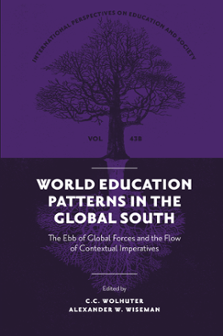
Index
ISBN: 978-1-80382-682-0, eISBN: 978-1-80382-681-3
ISSN: 1479-3679
Publication date: 1 September 2022
Citation
(2022), "Index", Wolhuter, C.C. and Wiseman, A.W. (Ed.) World Education Patterns in the Global South: The Ebb of Global Forces and the Flow of Contextual Imperatives (International Perspectives on Education and Society, Vol. 43B), Emerald Publishing Limited, Leeds, pp. 207-217. https://doi.org/10.1108/S1479-36792022000043B013
Publisher
:Emerald Publishing Limited
Copyright © 2022 C. C. Wolhuter and Alexander W. Wiseman
INDEX
Note: Page numbers followed by “n” indicate notes.
- Prelims
- Belarus, Russia and Ukraine: Development of National Education in the Context of Globalization and Europeanization
- Education in the Mena Region
- Education in Central Asia: Kazakhstan, Kyrgyzstan, Tajikistan and Uzbekistan
- Education in South Asia
- Early Childhood Education and Legacy of Neoliberalism in Southeast Asian Countries: Case Study of Indonesia, Malaysia, Vietnam and Myanmar
- Vietnamese Education in the Era of Globalization: Looking Through Wolhuter’s Frameworks
- Locating the “Sea of Islands” Within an Ocean of Globalization: Examining the Global–Local Dialect in Oceania
- Socio-Educative Overview in Latin America and the Caribbean in Comparative Perspective: Historicization, Challenges and Perspectives
- Brazil: Is There an Order to Chaos?
- Sub-saharan Africa: Ex Africa Semper Aliquid Novi or Neo-neo-colonialism?
- Teachers and Members of the Comparative Education Society of Cuba
- Index